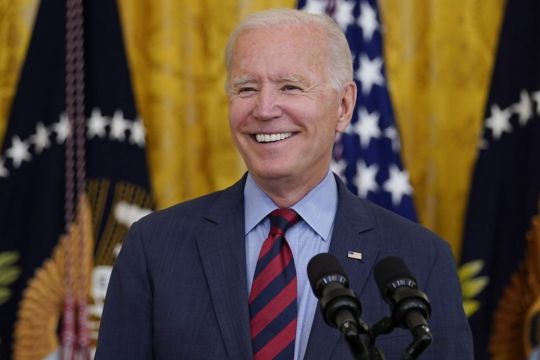Democrats have pushed a $3.5 trillion (€3 trillion) framework for bolstering family services, health and environment programmes through the Senate, advancing President Joe Biden’s expansive vision for reshaping federal priorities hours after handing him a triumph on a hefty infrastructure package.
Legislators approved the budget resolution on a party-line 50-49 vote, a crucial step for a president and party set on training the government’s fiscal might at assisting families, creating jobs and fighting climate change. Higher taxes on the wealthy and corporations would pay for much of it.
Passage came despite an avalanche of Republican amendments intended to make their rivals pay a price in next year’s elections for control of Congress.

House of Representatives leaders announced their chamber will return from summer recess in two weeks to vote on the fiscal blueprint, which contemplates disbursing the 3.5 trillion dollars over the next decade.
Final congressional approval, which seems certain, would protect a subsequent bill enacting the detailed spending and tax changes from a Republican filibuster in the 50-50 Senate, delays that would otherwise kill it.
Senate Budget Committee chairman Bernie Sanders, once a progressive voice in Congress’s wilderness and now a national figure wielding legislative clout, said the measure would help children, families, the elderly and working people — and more.
“It will also, I hope, restore the faith of the American people in the belief that we can have a government that works for all of us, and not just the few,” he said.

Republicans argued that Democrats’ proposals would waste money, raise economy-damaging taxes, fuel inflation and codify far-left dictates that would harm Americans.
The Senate turned to the budget hours after it approved the other big chunk of Mr Biden’s objectives, a compromise trillion dollar bundle of transport, water, broadband and other infrastructure projects. That measure, passed by 69-30, also needs House approval.
Senate majority leader Chuck Schumer assured progressive Democrats that Congress will pursue sweeping initiatives going beyond the infrastructure compromise.
It was a nod to divisions between the party’s moderates and liberals that he and Nancy Pelosi will have to resolve before Congress can approve their fiscal goals. Democrats control the House but only narrowly.
“To my colleagues who are concerned that this does not do enough on climate, for families, and making corporations and the rich pay their fair share: we are moving on to a second track, which will make a generational transformation in these areas,” Mr Schumer said.







